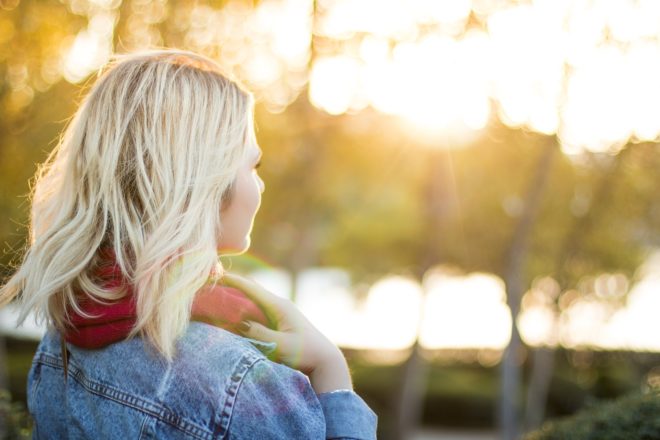Apart from natural enjoyment why is it so important to relax? Well we don’t just relax because it’s fun, although fun is very important to balance life, but also there is a really strong connection between relaxation and our mental, physical, emotional and spiritual health.
It’s well known today that every emotion has a corresponding chemical reaction happening in the brain. The hypothalamus located in the brain releases certain complex amino acids called neuropeptides.
Every time there is fear, anxiety, hurt or distress these neuropeptides are released into the bloodstream by the pituitary and thereafter they swim along with the blood and reach various organs of the body.
Each organ is made up of innumerable cells and all cells have tiny antenna called Cell Receptors. So the neuropeptides get locked into these cell receptors and can cause physical illness.
When we relax we manifest a healing health condition. The human body has a miraculous ability to heal itself. Whenever your mind, body and consciousness are aligned with each other.
Whenever the various personalities within the mind are functioning in synchronicity with each other there is an internal peace and the various cells in the body are in a better relationship with each other.
In this the body will heal faster and we will be less prone to negative emotions, less likely to be physically ill and thus feel alive and well.
So, in understanding how important it is to relax, some questions to ask are; what are the things that stop us from relaxing? What are the best ways to relax and really what is relaxation?
Well I think relaxation is a refreshment of body and mind, it’s like everything loosens and there is a reduction in the strictness and severity we apply to our lives.
It’s almost as if we just let go completely, surrender to what life is offering and consciously decide to take care of ourselves, despite what our minds might be saying. Easier said than done? Perhaps, but again I think this is dependent on attitude.
For example: think of something that you would just say yes to doing without a shadow of a doubt. Something that if you were confronted with, there would be no consideration of yes or no, you would just take action without thought. We all have something like that.
Perhaps it’s running to the rescue of a loved one or a child in need, perhaps it’s doing that little extra to get the deal done. Whatever it is for you ask yourself what is it that motivates that response?
Because whatever the motivation this is a great clue in how to set aside time for yourself to relax.
Relaxing needs to become an integral part of life if you want to be happy, healthy and free…
I think indirectly relaxation is connected to self-worth and self-love. When we love and respect ourselves it’s much easier to take care and set aside time for reflection, rejuvenation and relaxation.
It’s important to know that you are worthy and the way to realise this and truly live it, is to move from your head to your heart.
In moving from the head to the heart you will also automatically slow your heart rate down and notice that there is a gentle quiet inside that is always here. The mind will continue its busy activity of trying to distract you but that’s only because it feels threatened.
It’s good to understand the wisdom of the heart. The heart is 5000 times more powerful that the head. You know that gut feeling you have at times, that knowing, well follow that because truly it will guide you much more successfully than anything else.
I’m not saying thinking is not good, there are times when it’s really important to use the mind, when we are planning & in every day functioning, but when we give in to the psychological aspect of the mind you can be sure trouble will arise.
Trouble that can include stress, tension, anxiety and other negative states. So bringing your attention to your heart centre by taking some time out is very important and there are so many ways to do that.
Clients of mine often ask me for ideas of what they can do to relax and how to include relaxation techniques in their daily schedule.
What I have found over many years of working with others to support their well-being and happiness is that the best techniques and the ones that people are likely to stick to are ones that give them not only results but that they enjoy.
Whilst meditation is one such technique that works for many, there are so many things you can include in your daily life that will support peace of mind and relaxation.
The common suggestions will probably include things like yoga, stretching, walking in nature and getting a good nights sleep, I think it’s a good idea to find your own individual way.
One of my clients relaxes by watching TV each day, another by reading stories to her kids at bedtime and another by having a glass of wine at the end of the day. We are all so individual. Rather than do it right let’s do it easy.
What is it that you could do in your life that would make you smile, be present, open your heart to yourself and others? What would help you to stop the psychological noise that keeps you separate from your natural relaxed state?
You see relaxation is part of your natural state so it may take a little reflecting, discovering what works but when you have lovingly and easily connected with your way you will find it much easier to include in your daily and weekly routine.
Relaxation techniques are a great way to help with stress management. Relaxation isn’t only about peace of mind or enjoying a hobby. Relaxation is a process that decreases the effects of stress on your mind and body.
Relaxation techniques can help you cope with everyday stress and various health problems, such as heart disease and pain. Whether your stress is spiralling out of control or you’ve already got it tamed, you can benefit from relaxation techniques.
Practicing Relaxation Techniques Can Have Many Benefits Including:
- Slowing heart rate
- Lowering blood pressure
- Improving digestion
- Slowing breathing rate
- Balancing blood sugar levels
- Reducing stress hormone activity
- Increasing blood flow to major muscles
- Reducing tension and chronic pain
- Increasing a sense of happiness and freedom
- Overall general well being
- Improving concentration and mood
- Improving sleep quality
- Lowering fatigue
- Reducing anger and frustration
- Boosting confidence to handle problems
Some Relaxation Techniques You May Like To Try:
Autogenic Relaxation. Autogenic means something that comes from within you. In this technique, you use both visual imagery and body awareness to reduce stress. You repeat words or suggestions in your mind that may help you relax and reduce muscle tension.
For example, you may imagine a peaceful setting and then focus on controlled, relaxing breathing, slowing your heart rate, or feeling different physical sensations, such as relaxing each arm or leg, one by one.
Progressive Muscle Relaxation. In this relaxation technique, you focus on slowly tensing and then relaxing each muscle group. You can become more aware of physical sensations.
One method is to start by tensing and relaxing the muscles in your toes and progressively working your way up to your neck and head. You can also start with your head and neck and work down to your toes.
Tense your muscles for about five seconds and then relax for 30 seconds, and repeat.
Visualization. In this technique, you can form mental images to take a visual journey to a peaceful, calming place to relax using visualization, try to incorporate as many senses as you can, including smell, sight, sound and touch.
If you imagine relaxing at the ocean, for instance, imagine the smell of salt water, the sound of crashing waves and the warmth of the sun on your body.
You may want to close your eyes, sit in a quiet spot, loosen any tight clothing, and
concentrate on your breathing. Aim to focus on the present and really experience your visualisation. It’s a bit like day dreaming with feeling.
Some Other Relaxation Techniques May Include:
- Deep breathing
- Massage
- Meditation
- Tai chi
- Yoga
- Music or art therapy
- Aromatherapy
- Guided Meditation
I wish you well in your relaxation journey and please remember happiness is a journey not a destination. Human life is precious so let’s enjoy it to the max.
You can find much more information on living a holistic lifestyle in these free magazines and on our YouTube channel.
 Pavitar Debra Turner – Oneness Trainer, Transformational and Holistic Counselling
Pavitar Debra Turner – Oneness Trainer, Transformational and Holistic Counselling






